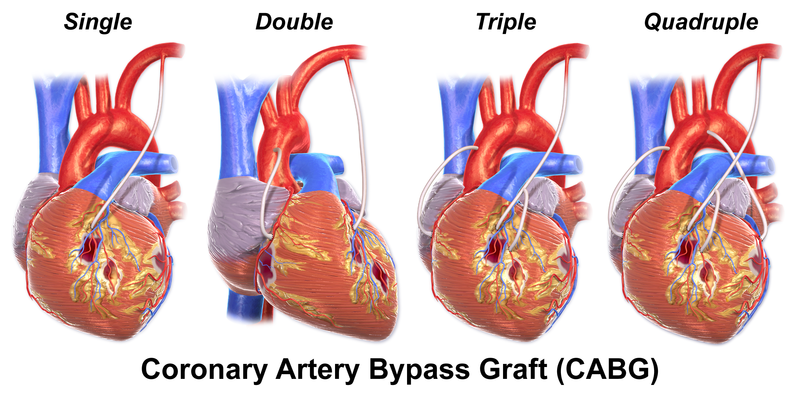MASS II [i] is a small, single-center study designed to compare the long term effects of Medical Therapy (MT), Percutaneous Coronary Intervention (PCI) or Coronary Artery Bypass Grafting (CABG) among patients with stable angina, multivessel CAD and preserved ventricular function. Patients selected were appropriate candidates for all 3 therapies. In MASS II 611 patients were randomly assigned to CABG (n=203), …
The Courage Trial – Optimal Medical Therapy with or without PCI for Stable Coronary Disease
Optimal Medical Therapy with or without PCI for Stable Coronary Disease, William E. Boden, M.D.,and others, NEJM april 12, 2007. This study was performed to evaluate and compare optimal medical therapy with percutaneous coronary intervention (PCI). In patients with stable coronary artery disease, it remains unclear whether an initial management strategy of percutaneous coronary intervention (PCI), combined with intensive pharmacologic therapy …
PCI vs. CABG – A Current Perspective
In all likelihood this article has only been read by cardiac surgeons. It provides “new” (actually old) information about what constitutes current and optimal therapy for CAD, and especially what long term outcomes can be expected. For this reason the article was printed in its entirety: Percutaneous coronary intervention versus coronary artery bypass surgery in multivessel disease: a current perspective …
Long Term Survival of Adenocarcinoma of the Esophagus
Carcinoma of the esophagus is a relatively rare but very lethal disease. 50% of all patients diagnosed will have adeno carcinoma, which has been associated with a very poor long term survival. During my residency, I had the honor of working with F. Henry Ellis, one of the giants of esophageal surgery in the US. Yet even he confessed that …
PCI & CABG for Diabetics with 3VD
A subset of patients with diabetes and 3VD was examined in a 2nd paper in 2010.The purpose of this study from Washington State was to examine the application of revascularization strategy in this high-risk patient population of patients with diabestes and multi-vessel coronary artery disease. Specifically, it was sought to determine: the revascularization strategies employed in diabetic patients with MVD …
Carotid Stents and Stroke
Carotid Stents may raise patient risk for another stroke Confirming an earlier report in February, 2010, The International Carotid Stenting Study (ICSS) study showed a continued higher event rate of stroke, death, or peri-procedural MI with stenting vs. surgery for symptomatic carotid stenosis. (ICSS, which compared carotid artery stenting with carotid endarterectomy in patients with symptomatic carotid artery stenosis, showed …
CREST: Treatment of Carotid Artery Disease
“Primary composite outcomes” (lumping complications together into one composite complication), allows shading of negative results that only become visible with careful study of a publication. In the CREST study described below, the authors combined procedural death, stroke and myocardial infarction together into a composite complication. In doing so they found no outcome difference between Carotid artery stenting (CAS) and Endarterectomy …
The BARI 2D Trial Study
The BARI 2D Study Group. A randomized trial of therapies for type 2 diabetes and coronary artery disease In this study, the authors report the findings of the Bypass Angioplasty Revascularization Investigation 2 Diabetes (BARI 2D) trial, involving 2368 patients with both diabetes and coronary disease. Patients with type 2 diabetes and stable ischemic heart disease were randomly assigned to …
Survival of patients with diabetes and multivessel coronary artery disease
… Published the results of survival of patients with diabetes and MVD after surgical or percutaneous coronary revascularization. Their results showed that in 2766 risk matched diabetics PCI increased five-year mortality by 1.5–3.9 times… In 2,766 patients with diabetes undergoing their first coronary revascularization procedure, improved survival with CABG was the initial revascularization demonstrated. The analysis supported that bypass surgery …
Percutaneous Coronary Intervention (PCI) – Risks & Benefits
A 58-year-old man has chest pain at 9:30 a.m.; 3 hours later, he calls for an ambulance. Paramedics arrive, provide standard treatment, and transport him to the nearest emergency department. On his arrival at a small hospital at 1 p.m., the findings are diagnostic of a myocardial infarction with ST-segment elevation. The emergency department physician recommends immediate transfer to a …
- Page 2 of 2
- 1
- 2

